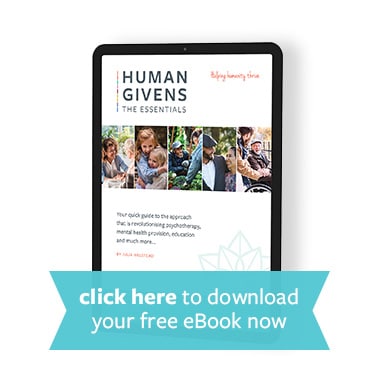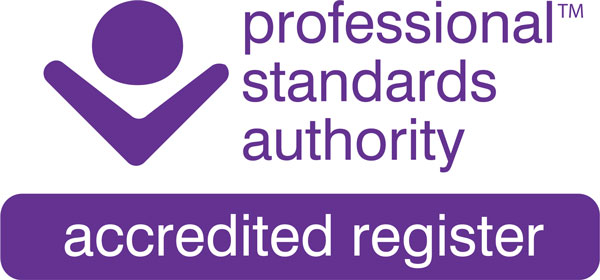What are the ‘human givens’?
We are all born with innate knowledge programmed into us from our genes. Throughout life we experience this knowledge as feelings of physical and emotional need.
These feelings evolved over millions of years and, whatever our cultural background, are our common biological inheritance. They are the driving force that motivates us to become fully human and succeed in whatever environment we find ourselves in.
It is because these psychological (or emotional) needs are incorporated into our biology at conception that we call them – and the innate resources we have in order to help us meet them – human ‘givens’ – they are the givens and drivers of human nature.
Our given physical needs
As animals we are born into a material world where we need air to breathe, water, nutritious food, sufficient sleep and physical connection to others. These are the paramount physical needs. Without them, we quickly die. In addition we also need the freedom to stimulate our senses and exercise our muscles. We instinctively seek sufficient and secure shelter where we can grow and reproduce ourselves and bring up our young. These physical needs are intimately bound up with our emotional needs — the main focus of human givens psychology.
Our given emotional needs
 Emotions create distinctive psychobiological states in us and drive us to take action. The emotional needs nature has programmed into us are there to connect us to the external world (particularly to other people), and help us survive in it. These needs seek their fulfilment through the way we interact with the environment we find ourselves in.
Emotions create distinctive psychobiological states in us and drive us to take action. The emotional needs nature has programmed into us are there to connect us to the external world (particularly to other people), and help us survive in it. These needs seek their fulfilment through the way we interact with the environment we find ourselves in.
Consequently, when our human needs are not met in the world, nature ensures we suffer considerable distress — anxiety, anger, depression etc. — and our expression of distress, in whatever form it takes, impacts on those around us.
People whose emotional needs are met in a healthy way do not suffer problems with their mental health. When psychotherapists pay attention to this and put identifying and addressing clients’ unmet needs at the heart of their work, they are at their most effective. When teachers seek to address emotional needs through the way they teach, children engage and learn more.
In short, it is by meeting our physical and emotional needs that we survive and develop as individuals and a species.
There is widespread agreement about the nature of our emotional needs, uncovered by decades of health and social psychology research – the main ones essential for our mental health are listed below.
Emotional needs include:
- Security — safe territory and an environment which allows us to develop fully
- Attention (to give and receive it) — a form of nutrition
- Sense of autonomy and control — having volition to make responsible choices
- Emotional intimacy — to know that at least one other person accepts us totally for who we are, “warts ‘n’ all”
- Feeling part of a wider community
- Privacy — opportunity to reflect and consolidate experience
- Sense of status within social groupings
- Sense of competence and achievement
- Meaning and purpose — which come from being stretched in what we do and think.
You can view a useful infographic of your emotional needs here.
Our innate resources
Nature also gave us an innate ‘guidance system’ to help us meet our needs. We refer to this as our ‘resources’ and they, together with essential needs, make up our human givens. How we develop and use our resources is just as important for mental health as getting our innate needs met.
The resources nature gave us to help us meet our human needs include:
- The ability to develop complex long term memory, which enables us to add to our innate knowledge and learn
- The ability to build rapport, empathise and connect with others
- Imagination, which enables us to focus our attention away from our emotions, use language and problem solve more creatively and objectively
- Emotions and instincts – a guidance system whereby, through the release of a variety of neurotransmitters, hormones and other chemical messengers, we act to meet our survival needs
- The conscious, rational ability to check out emotions, question, analyse and plan
- The ability to ‘know’ — that is, understand the world unconsciously through metaphorical pattern matching
- An observing self — that part of us that can step back, be more objective and be aware of itself as a unique centre of awareness, apart from intellect, emotion and conditioning
- A dreaming brain that preserves the integrity of our genetic inheritance every night by metaphorically defusing expectations held in the autonomic arousal system because they were not acted out the previous day.
You can view a useful infographic of your innate resources here.
These needs and tools together make up nature’s genetic endowment to humanity, which we call our human givens.
Over enormous stretches of time, our human givens underwent continuous refinement as they drove our evolution on. They are best thought of as inbuilt patterns — biological templates — that continually interact with one another and (in undamaged people) seek their natural fulfilment in the world in ways that allow us to survive, live together as many-faceted individuals in a great variety of different social groupings, and flourish.
It is the way those needs are met, and the way we use the resources that nature has given us, that determine the physical, mental and moral health of an individual.
Thus, the human givens should be the benchmark to which we all refer — in education, mental and physical health and the way we organise and run our lives.
When we feel emotionally fulfilled and are operating effectively within society, we are more likely to be mentally healthy and stable. But when too many innate physical and emotional needs are not being met, or not sufficiently well, or when our resources are used incorrectly, unwittingly or otherwise, we suffer considerable distress – and so do those around us.
by Ivan Tyrrell and Joe Griffin
Discover more:
How does human givens differ from other therapy approaches?
About the human givens approach
Celebrating 20 years of the human givens approach
Benefits of the human givens approach
Online Courses – with Joe Griffin and Ivan Tyrrell




